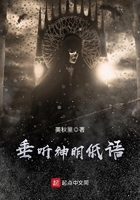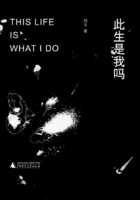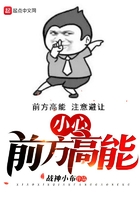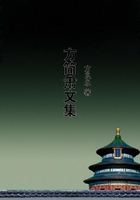A WEEK had elapsed since the rendezvous of our two friends on the green bench in the park, when, one fine morning at about half-past ten o'clock, Varvara Ardalionovna, otherwise Mrs. Ptitsin, who had been out to visit a friend, returned home in a state of considerable mental depression.
There are certain people of whom it is difficult to say anything which will at once throw them into relief--in other words, describe them graphically in their typical characteristics. These are they who are generally known as "commonplace people," and this class comprises, of course, the immense majority of mankind.
Authors, as a rule, attempt to select and portray types rarely met with in their entirety, but these types are nevertheless more real than real life itself.
"Podkoleosin" [A character in Gogol's comedy, The Wedding.] was perhaps an exaggeration, but he was by no means a non-existent character; on the contrary, how many intelligent people, after hearing of this Podkoleosin from Gogol, immediately began to find that scores of their friends were exactly like him! They knew, perhaps, before Gogol told them, that their friends were like Podkoleosin, but they did not know what name to give them. In real life, young fellows seldom jump out of the window just before their weddings, because such a feat, not to speak of its other aspects, must be a decidedly unpleasant mode of escape; and yet there are plenty of bridegrooms, intelligent fellows too, who would be ready to confess themselves Podkoleosins in the depths of their consciousness, just before marriage. Nor does every husband feel bound to repeat at every step, "Tu l'as voulu, Georges Dandin!" like another typical personage; and yet how many millions and billions of Georges Dandins there are in real life who feel inclined to utter this soul-drawn cry after their honeymoon, if not the day after the wedding! Therefore, without entering into any more serious examination of the question, Iwill content myself with remarking that in real life typical characters are "watered down," so to speak; and all these Dandins and Podkoleosins actually exist among us every day, but in a diluted form. I will just add, however, that Georges Dandin might have existed exactly as Moliere presented him, and probably does exist now and then, though rarely; and so I will end this scientific examination, which is beginning to look like a newspaper criticism. But for all this, the question remains,--what are the novelists to do with commonplace people, and how are they to be presented to the reader in such a form as to be in the least degree interesting? They cannot be left out altogether, for commonplace people meet one at every turn of life, and to leave them out would be to destroy the whole reality and probability of the story. To fill a novel with typical characters only, or with merely strange and uncommon people, would render the book unreal and improbable, and would very likely destroy the interest. In my opinion, the duty of the novelist is to seek out points of interest and instruction even in the characters of commonplace people.
For instance, when the whole essence of an ordinary person's nature lies in his perpetual and unchangeable commonplaceness;and when in spite of all his endeavours to do something out of the common, this person ends, eventually, by remaining in his unbroken line of routine--. I think such an individual really does become a type of his own--a type of commonplaceness which will not for the world, if it can help it, be contented, but strains and yearns to be something original and independent, without the slightest possibility of being so. To this class of commonplace people belong several characters in this novel;--characters which--I admit--I have not drawn very vividly up to now for my reader's benefit.
Such were, for instance, Varvara Ardalionovna Ptitsin, her husband, and her brother, Gania.
There is nothing so annoying as to be fairly rich, of a fairly good family, pleasing presence, average education, to be "not stupid," kind-hearted, and yet to have no talent at all, no originality, not a single idea of one's own--to be, in fact, "just like everyone else."Of such people there are countless numbers in this world--far more even than appear. They can be divided into two classes as all men can--that is, those of limited intellect, and those who are much cleverer. The former of these classes is the happier.
To a commonplace man of limited intellect, for instance, nothing is simpler than to imagine himself an original character, and to revel in that belief without the slightest misgiving.
Many of our young women have thought fit to cut their hair short, put on blue spectacles, and call themselves Nihilists. By doing this they have been able to persuade themselves, without further trouble, that they have acquired new convictions of their own.
Some men have but felt some little qualm of kindness towards their fellow-men, and the fact has been quite enough to persuade them that they stand alone in the van of enlightenment and that no one has such humanitarian feelings as they. Others have but to read an idea of somebody else's, and they can immediately assimilate it and believe that it was a child of their own brain.
The "impudence of ignorance," if I may use the expression, is developed to a wonderful extent in such cases;--unlikely as it appears, it is met with at every turn.
This confidence of a stupid man in his own talents has been wonderfully depicted by Gogol in the amazing character of Pirogoff. Pirogoff has not the slightest doubt of his own genius,--nay, of his SUPERIORITY of genius,--so certain is he of it that he never questions it. How many Pirogoffs have there not been among our writers--scholars--propagandists? I say "have been," but indeed there are plenty of them at this very day.















